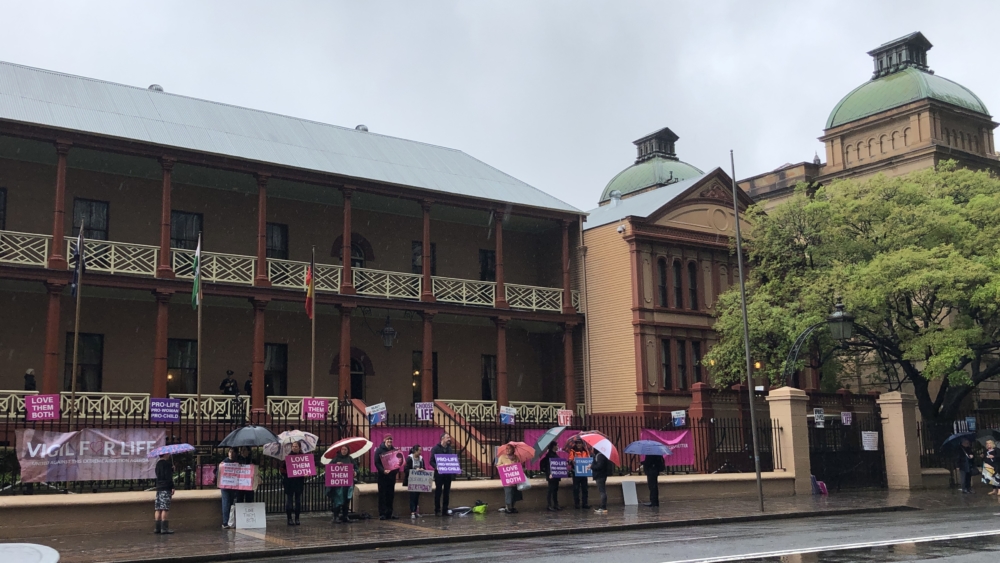Pressure from pro-life politicians Tanya Davies (Liberal, Mulgoa) and Kevin Conolly (Liberal, Riverstone), has resulted in a much modified Abortion Law Reform Act for NSW.
Sitting through five days of debates, it was obvious to Eternity that there was a shift half way through. At that point in the Legislative Council debates, a series of compromise amendments began to be moved – including a very late one about late-term abortions.
The big picture is that abortion will be decriminalised in NSW
The two pro-life MPs put their careers on the line by threatening to move to the cross benches which would remove the Berejiklian Government’s majority.
The bill which will decriminalise abortion, has had four key changes out of some 42 amendments considered.
• Sex selection: Instead of a review promised for 12 months time (after a review of the data), guidelines which will have the force of law will be drawn up by the Health Department. The review will still take place, and another amendment now requires the collection of abortion data. From comment during the debate, Eternity understands these will become public in some form.
• Late-term abortions: The original bill gave freedom for two doctors to agree to a late-term abortion, which arguably was a looser arrangement than the existing law. The amendment has restored the need for the doctors to specify “sufficient grounds”, which codifies the existing common law position of “a woman’s physical and/or mental health in serious danger,” with economic social circumstances also taken into account. All terminations after 22 weeks will now have to be performed in a public hospital.
• Babies born alive: The more centrist of two amendments was passed which will require doctors to treat aborted babies born alive as they would any other child. In NSW, it is possible still for babies to be born alive below the age of viability – and doctor’s guidelines will have to decide what care to give them. The age of viability is expected to be lowered over time.
• Conscientious objection: The original bill would have required doctors and other medical personnel who do not wish to take part in terminations to refer patients to a doctor which they believed would do the abortion. This referral is a formal process and pro-life doctors objected to it, saying it would mean they are still involved. The compromise found will require doctors with a conscientious objection to direct patients to NSW Health – which could simply mean a website.
The passionate demonstrations and the nightly rallies outside NSW Parliament – which could be heard in the chamber- have resulted in a modified bill.
However, the big picture is that abortion will be decriminalised in NSW, a stigma of illegality removed and, so, abortion will be more accessible.
Email This Story
Why not send this to a friend?




